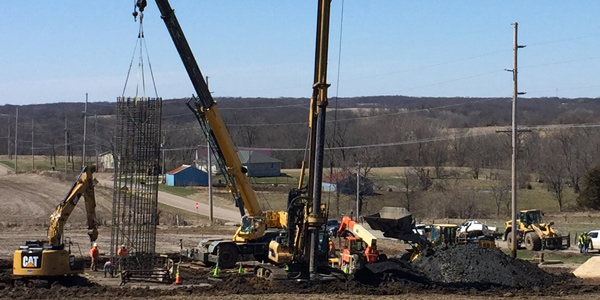By Amanda Durish Cook
The U.S. Supreme Court announced March 6 it would not hear a challenge seeking to reinstate the federal right of first refusal in transmission construction, letting an appellate ruling sustaining FERC Order 1000 stand.
In April, the 7th U.S. Circuit Court of Appeals in Chicago upheld Order 1000’s removal of the federal ROFR in a challenge by Ameren and other MISO transmission owners (14‐2153). The case was combined with two challenges by LSP Transmission Holdings that contended FERC did not go far enough in injecting competition into transmission development (14‐2533, 15‐1316).
The court ruled that FERC didn’t have to show the federal ROFR was against the public interest before scrapping it. (See Seventh Circuit Court Upholds FERC Order 1000 ROFR Provisions.)
Ameren filed a petition for certiorari with the Supreme Court in October. The company, with Northern Indiana Public Service Co. and Otter Tail Power, argued that the April ruling is at odds with the Mobile-Sierra doctrine, and said FERC should assume the ROFR is reasonable unless the commission proves it is contrary to the public interest. The companies warned that failing to reverse the 7th Circuit’s ruling would allow FERC to ignore the Mobile-Sierra presumption in the future.
FERC decided in 2011’s Order 1000 that federal ROFRs that give incumbent transmission owners first pass on new project construction were anti-competitive and should be removed from all FERC-approved tariffs. Order 1000 did not, however, pre-empt state or local ROFRs.
“The Mobile-Sierra doctrine is based on the assumption that sophisticated parties with competing interests and equal bargaining power will usually reach a compromise that is reasonable and fair. The opposite is true when parties collude with one another to restrain competition and maintain a monopoly. … There is no reason to believe that a contract negotiated by parties with a shared interest in excluding third-party competition is similarly just and reasonable,” FERC wrote in a brief to the Supreme Court in February.
MISO still honors state and local rights of first refusal and can use a limited federal ROFR for certain grid reliability projects. The RTO does not have a competitive project scheduled in 2017 because the year’s lone market efficiency project — the $80.9 million Huntley-Wilmarth 345-kV line in Minnesota — is covered by the state’s ROFR. (See MISO Board Approves MTEP 16’s $2.7B in Tx Projects.)





